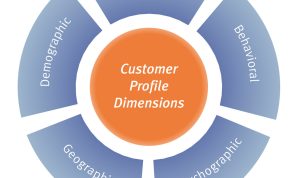E-commerce SEO for Fashion Businesses – E-commerce for Fashion Businesses is a vital aspect of thriving in a competitive online market. It combines the art of fashion with the science of search engine optimization, ensuring that your brand not only stands out but also reaches the right audience effectively. As the fashion industry increasingly shifts to digital platforms, understanding the nuances of becomes paramount for driving traffic and boosting sales.

This introduction sets the stage for exploring the intricate relationship between e-commerce and within the fashion sector, highlighting the strategies that can elevate a brand’s online presence. From optimizing product descriptions to utilizing social media, mastering these elements can lead to significant growth and visibility in a crowded marketplace.
In the rapidly evolving landscape of technology, one of the most significant advancements has been the rise of artificial intelligence (AI). AI is no longer just a futuristic concept; it has become an integral part of our daily lives, influencing various sectors including healthcare, finance, education, and entertainment. This article aims to explore the multifaceted world of AI, addressing its impact on society, the ethical considerations it raises, and its potential future developments.To begin with, it’s essential to understand what artificial intelligence truly encompasses.
At its core, AI refers to the simulation of human intelligence in machines that are programmed to think like humans and mimic their actions. This includes tasks such as learning, reasoning, problem-solving, perception, and language understanding. The field of AI is vast, encompassing subfields such as machine learning, natural language processing, robotics, and computer vision.One of the most notable applications of AI can be seen in healthcare.
AI technologies are revolutionizing medical diagnostics, patient care, and treatment personalization. For instance, AI algorithms can analyze medical images with remarkable accuracy, often surpassing human radiologists. Additionally, AI is being utilized to predict patient outcomes, optimize treatment plans, and even assist in drug discovery. This not only streamlines the workflow of healthcare professionals but also enhances the overall quality of patient care.In the financial sector, AI has transformed the way we manage and analyze financial data.
Algorithms can assess market trends, predict stock prices, and even detect fraudulent activities with incredible precision. Many banks and financial institutions are now using AI-driven chatbots to enhance customer service, providing instant assistance and improving user experience. This shift not only increases efficiency but also allows human employees to focus on more complex tasks that require critical thinking and creativity.Education is another sector experiencing a significant transformation due to AI.
With the rise of personalized learning platforms, AI enables educators to tailor instruction to meet the individual needs of students. For example, adaptive learning technologies can assess a student’s understanding and adjust content accordingly, ensuring optimal learning experiences. Furthermore, AI-driven analytics can provide educators with insights into student performance, allowing them to identify areas for improvement and intervene when necessary.Despite the numerous benefits that AI brings to various industries, it is crucial to address the ethical considerations surrounding its use.
One major concern is data privacy. As AI systems rely heavily on vast amounts of data to learn and make decisions, there is a risk of misuse or mishandling of sensitive information. Striking a balance between leveraging data for innovation and protecting individual privacy is essential to building trust in AI technologies.Additionally, the potential for job displacement due to automation is a pressing issue.
While AI can undoubtedly enhance productivity, it also raises questions about the future of work. Many jobs, particularly those involving repetitive tasks, are at risk of being replaced by AI-driven systems. However, it is important to note that AI is also likely to create new job opportunities, particularly in sectors focused on AI development, maintenance, and oversight.Another ethical consideration is the potential for bias in AI algorithms.
Since AI systems learn from historical data, they may inadvertently perpetuate existing biases present in that data. For example, if an AI system is trained on data that reflects societal biases, it may produce biased outcomes, leading to unfair treatment of specific groups. Ensuring fairness and transparency in AI decision-making processes is critical to fostering equitable outcomes.Looking towards the future, the possibilities for AI are both exciting and uncertain.
As research and development continue to advance, we can expect to see even more innovative applications of AI. One area of particular interest is the integration of AI with other emerging technologies, such as the Internet of Things (IoT) and blockchain. This convergence has the potential to unlock new levels of efficiency and functionality across various sectors.Furthermore, the ongoing development of general artificial intelligence (AGI) remains a fascinating topic.
Unlike narrow AI, which is designed for specific tasks, AGI aims to replicate human-like cognitive abilities across a wide range of functions. While we are still far from achieving AGI, the pursuit of this goal raises important questions about the implications for humanity, including the ethical and philosophical considerations surrounding machine consciousness and autonomy.In conclusion, artificial intelligence is a powerful force that is reshaping our world in profound ways.
Its applications in healthcare, finance, and education demonstrate its potential to enhance efficiency and improve outcomes. However, as we navigate this new terrain, it is essential to address the ethical challenges it presents, including data privacy, job displacement, and algorithmic bias. As we look to the future, the continued development of AI holds immense promise, but it must be approached with caution and responsibility.
By fostering a collaborative dialogue between technologists, policymakers, and society at large, we can harness the full potential of AI while ensuring it serves the greater good.
FAQ Insights: E-commerce SEO For Fashion Businesses
What is the importance of for fashion e-commerce?
helps fashion businesses improve their visibility on search engines, attract targeted traffic, and increase sales conversions.
How can I optimize my fashion website for ?
Focus on research, optimizing product descriptions, using high-quality images, and enhancing site speed and mobile usability.
What role do social media play in fashion ?
Social media can drive traffic to your website, boost brand awareness, and improve engagement, which can positively impact your rankings.
Are there specific tools for fashion businesses?
Yes, tools like SEMrush, Ahrefs, and Google Analytics are valuable for research, tracking performance, and analyzing competition.
How often should I update my strategy?
Regularly review and update your strategy, ideally every few months, to adapt to changing trends and algorithms.





